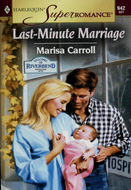This book cannot be downloaded as a file but can be read in our app or online on the website.
Read the book: «The One Safe Place»
Reed assumed that Faith would fall asleep early
To his surprise when he strolled onto the porch around ten o’clock, she was standing out there.
She didn’t hear him at first. It probably would have been wiser to turn around and leave her alone. But he wasn’t feeling wise. All evening he’d been feeling edgy, unable to settle in. He felt irrationally as if his life was on the verge of becoming completely different, though he had no idea how.
Maybe it was just the weird feeling of having other people in the house. No one but him had slept here since Melissa died.
He was careful to make enough noise to be sure she’d hear him. Given what she’d been through lately, the last thing he wanted was to startle her.
She turned around. “Hi,” she said, smiling.
“Hi,” he responded casually, but his senses were suddenly reeling. She smelled of soap and some kind of perfume that made him think of pink flowers and springtime. Her hair fell to mid-arm, curving against the tender spot where he’d earlier noticed a large white bandage. The bandage had been a brutal reminder that she wasn’t here for a social visit. She wasn’t even here to be his housekeeper.
She was a wounded, frightened woman. A refugee seeking asylum.
He felt a sudden flash of anger. How could anyone be trying to hurt someone so beautiful?
Dear Reader,
Once, when he was little, my son told me he was tired of all this fuss about rainbows. They weren’t anything special, he said. They were, in fact, kind of stupid.
I have to admit even I was shocked. He might as well have said he didn’t admire Mozart, or daffodils, or God. What kind of man could grow from a boy who didn’t like rainbows?
But as I watched him turn into a wonderful young man, full of kindness and imagination, I finally understood. That little boy hadn’t been insensitive. He had merely been young—and very lucky. He knew nothing of struggle or fear or loss. He had no need for symbols of hope. He didn’t need reassurance that, after pain, joy would rise again.
Most of us know those things all too well. And we are grateful for the rainbow’s reminder that life’s storms, however violent, are temporary—and that sometimes, in the most unlikely of places, beauty and love can suddenly reappear.
Faith Constable, the heroine of The One Safe Place, is caught in one of those storms. When she flees to Firefly Glen, she is seeking only safety. She never dreams of finding happiness and love.
But then she meets Reed Fairmont. Reed is a man who can heal anything…sick puppies, surly lizards, damaged kids and even terrified heroines. Anything, that is, except his own broken heart. For that, he’ll need an unexpected rainbow. For that, he’ll need Faith.
I hope you enjoy reading their story as much as I enjoyed writing it. And the next time your life gets a little too stormy, don’t forget to look up. There might be a rainbow waiting for you, too!
Warmly,
Kathleen O’Brien
P.S. I love to hear from readers! Please write me at P.O. Box 947633, Maitland, FL 32794-7633 or at KOBrien@aol.com.
The One Safe Place
Kathleen O’Brien

The One Safe Place
Contents
CHAPTER ONE
CHAPTER TWO
CHAPTER THREE
CHAPTER FOUR
CHAPTER FIVE
CHAPTER SIX
CHAPTER SEVEN
CHAPTER EIGHT
CHAPTER NINE
CHAPTER TEN
CHAPTER ELEVEN
CHAPTER TWELVE
CHAPTER THIRTEEN
CHAPTER FOURTEEN
CHAPTER FIFTEEN
CHAPTER SIXTEEN
CHAPTER SEVENTEEN
CHAPTER ONE
FAITH CONSTABLE had never realized that getting shot with a .22 caliber rifle would make a person so damn angry.
But as she lay in the emergency room of St. Luke’s having her arm stitched up by a doctor who appeared to be a teenager, a bubbling fury was by far the strongest emotion she felt.
Stronger than fear, which actually might have been more logical. Stronger even than grief, which had colored her world dead black for the past four terrible weeks.
In a way, angry felt better. A frightened, grieving woman walked through life with her head down, incapable of action. But an angry woman was a force to be reckoned with.
As Detective James Bentley was about to find out.
“I said no, and I meant it,” Faith said. “I am not running away, and that’s final. I’m going to stay here and help you catch him.”
Detective Bentley had come to know Faith pretty well over the past month—intense emotion was a great social accelerator. He sat down in the guest chair, obviously recognizing that this might take a little longer than he’d expected.
“I think,” he said firmly, “you’d better leave the catching part to us.”
“I’ve been leaving it to you. Doug Lambert killed my sister more than four weeks ago, and he’s still out there.”
She had her back to the policeman, but she could imagine his face. He was fifty, lined and craggy and tough as nails. But his sad eyes were kind. The day she discovered Grace’s body, he’d held Faith like a daughter while she cried.
“We’re looking for him, Faith. We’ll find him. But it won’t help us if you get killed, too.”
Faith swallowed, shutting her eyes as the pimple-faced doctor dug another stitch into her torn flesh.
Killed. The word no longer seemed preposterous, alien, abstract. That was one more thing Doug Lambert had done to her life. He had introduced the reality of death—violent, wrongful death—and now it walked beside her always.
Just five hours ago, she had decided to go out jogging, hoping that the crisp late-September New York City morning would clear her head, maybe even lift her spirits. But she had, even then, been aware of the possibility of death. Any world that held Doug Lambert was a treacherous place.
And then out of nowhere, a noise. A sharp pain.
Death.
The bullet had skimmed across her upper arm, leaving a burning red path. Six inches to the right, and it would have hit her heart.
She remembered her breath misting in the chilly air as she cried out. And if the other joggers hadn’t stopped and gathered around, he could have pulled the trigger again, aiming a little more carefully this time.
Dead.
But wouldn’t that perhaps have been some dreadful kind of justice? After all, it should have been Faith who got killed in the first place. Doug Lambert hadn’t ever intended to murder Grace. In a fit of passion, coming up on her from behind, he had mistaken her for Faith.
Detective Bentley knew that as well as Faith did. But neither of them wanted to say it.
Faith tried not even to think it. If she started thinking about Grace right now, about how she had looked, lying there on her kitchen floor, her neck broken—then this hot, empowering anger might disappear in another flood of grief and guilt.
“I can’t,” she said. “I can’t let him chase me into a hole like a frightened mouse. What if you never do catch him? Am I going to live in that hole for the rest of my life?”
“We’ll catch him,” he repeated doggedly. “If it really is Doug Lambert, we’ll get him. And if it’s someone else, we’ll get him, too.”
“It’s Doug, damn it. It has to be. A millionaire who has been stalking me for months suddenly vanishes the day after my sister’s murder, and you think it’s a coincidence?”
“It might be. It’s my job to consider all the possibilities. I’ve told you that a thousand times, Faith.”
She felt her anger rising even higher. She was breathing fast, and the air tasted horribly of hospital, a bitter concoction of alcohol and sickness. She sensed her anger was irrational, maybe even artificially induced by shock and fear, and yet she was so filled with its roiling power that she could hardly lie still for the doctor to go on working.
Bentley’s attitude was frustrating to the point of madness. Doug had killed her sister. And now he was trying to kill her. She didn’t want a single hour wasted looking for other suspects.
“I saw him there that morning. And he knows it. He knows I am the only one who can place him at my apartment. That’s why he tried to shoot me today.”
“Maybe,” the detective agreed calmly. “And maybe not. Stray shootings aren’t exactly unheard of in this city, you know.”
“Bull.” She tried not to go any further with the profanity, though it was pushing at her throat, trying to explode through her fragile control. “That’s absurd. You’re not an idiot, Detective. How can you possibly swallow so many huge coincidences all at once?”
“I can’t. At least not without some serious chewing.” The detective shifted in the hospital chair, which was far too small for his six-foot-plus body. “Truth is, I hate coincidences. Which is why I want you to get the hell out of this town, Faith, and let us do our jobs.”
Hadn’t he been listening? Faith raised up on her elbow and twisted to look at him. “I told you I—”
“Please.” The young doctor had been steadfastly ignoring the debate between Faith and Detective Bentley, but at her movement he looked up, aggrieved. “I need you to be still. You two can work this out when I’m done.”
“I’m sorry.” But Faith couldn’t lie back down. Her adrenaline was pumping too wildly, making her veins feel slightly electrified. She felt as if she could leap off this table, run right out and capture Doug Lambert single-handedly. She glared hard at the detective.
“I’m serious. I’m not going to scuttle away. I am not afraid of him anymore. Let him try to kill me if he thinks he can.”
Bentley met Faith’s bravado with dark, serious eyes. Those eyes had seen too much, she thought suddenly. And now they saw everything, even the things she was trying to hide.
“Okay.” He paused. “And what about your nephew? If the boy is with you, he’ll probably get killed, too. Is that also okay?”
Faith stared at him a minute, hating him. And then, the adrenaline leaking out of her like water from an opened drain, she lowered herself slowly back onto the table.
Spencer.
She shut her eyes, feeling herself go limp. She had been right to cling desperately to her anger. The adrenaline had been the only thing that stood between her and the razor edge of meltdown.
The doctor took advantage of her momentary quiescence, knit his final stitch and tied it off. He stood, peeling off his latex gloves, obviously eager to depart before things got emotionally out of hand. Blood he could handle. Tears obviously were a different story.
That was his youth, Faith thought vaguely. Though she was only twenty-five, she felt a thousand years older than this young man. You had to cry a lot yourself before other people’s tears didn’t scare you anymore.
“Tell you what,” the doctor said, picking up her chart and scribbling in it. “I’ll leave you two to finish this. Let my nurse know when you’re ready, and she’ll apply the dressing. Detective, if you need anything more, have them page me.”
No one tried to stop him. And then Faith and the policeman were alone in the little alcove formed by the long white curtain. It wasn’t really a shelter, but it at least offered the illusion of privacy.
Still lying on her side, Faith stared at the huge silver hooks that held the drape on its semicircular rod. But she didn’t really see any of that. Instead she saw Spencer, his brown eyes wide and liquid with fear, his skinny, six-year-old body trembling, his hand creeping into hers. His pain locked somewhere so deep inside him it couldn’t make its way out in words.
Spencer.
Grief and guilt seeped in again, in the void the adrenaline and anger had left behind. She felt suddenly too heavy to move.
“And even if Lambert doesn’t bother killing the kid,” Detective Bentley went on conversationally, as if the subject truly intrigued him. “What does Spencer do when you’re gone? When he’s lost his mother and you?”
She didn’t answer. The anaesthetic was starting to wear off, and her arm had begun to throb.
The policeman didn’t seem to notice her silence. He just kept talking, as if mulling over the subject with an idle curiosity.
“Well, I guess he’d just have to go into foster care. It’s my understanding you’re the only family he’s got left—am I right? Kind of tough on the kid, though, wouldn’t you say? Foster care can be pretty grim. They don’t even stay in one home very long before—”
She closed her eyes. “Detective.”
“Yes?” He sounded annoyingly smug, as if he had predicted to the nanosecond exactly when her resistance would vanish.
“That’s enough,” she said softly. “You win.”
“I do?”
“Yes. I’ll go. I’ll go to—” She took a deep breath, though the air was sharp with disinfectant. “What did you say this mouse-hole you’ve found for me is called?”
“Actually, I didn’t say,” he answered politely. “You didn’t ask. But now that you have, I’m happy to tell you. This mouse-hole, as you put it, just happens to be upstate, in a rather beautiful little mountain town called Firefly Glen.”
ON THE WAY down to his veterinary clinic the next morning, Reed Fairmont looked around his quiet home, a rambling, lovingly renovated farmhouse from the 1800s, and tried to imagine strangers living here.
Frankly, he just couldn’t do it. In the two years since Melissa died, he’d come to terms with solitude. More than that—he’d come to like it. He’d come to need it.
And yet, by dinnertime today, these total strangers, this Faith Constable, who had somehow tangled with a murderer, and her nephew Spencer, who apparently was emotionally disturbed, would be here.
And then what? No more quiet dinners with the newspaper, that was for sure. No more smoky jazz on the stereo when he couldn’t sleep at three in the morning. No more burning off the day’s tension by banging weights around in the exercise room at midnight.
And lately he’d begun to start thinking about maybe dating again, just as another way to work off tension. Well, forget that, too.
Hell. Damn Parker Tremaine anyhow. Reed should never have let Parker talk him into this. That was a lawyer for you. They started talking, and before they were finished you found yourself agreeing with them.
He slammed the door that cut the rest of the house off from the clinic, something so out of character that Justine Millner, his receptionist, looked up, a line of worry marring her clear, white forehead.
“Anything wrong, boss?”
Behind her, a baby stirred and began to whimper, probably roused by the slamming door. Justine caught her lower lip prettily between her teeth.
“Sorry, Dr. Fairmont. My mom couldn’t keep Gavin this morning. My dad was home and he won’t let her, you know, so I had to bring him with me. I didn’t think you’d mind. I mean, you did say—”
“It’s fine,” he said, shaking off his bad mood long enough to bend down and let the baby wrap his fat hand around Reed’s thumb. “Everything’s fine.”
But was it? As if he didn’t have enough to worry about, he was already having second thoughts about giving Justine this job. For one thing, she was an incurable flirt. Reed had a fairly healthy ego—after all, he had won Melissa, hadn’t he? And since Melissa’s death plenty of women had shown themselves eager to help him recover.
But Justine was only nineteen. To her, a thirty-two-year-old widowed vet, however fit, however nice-looking, must seem ancient. Still she couldn’t open her mouth without flirting.
And, though she had assured him her mom would keep the baby whenever she could, whenever her father wasn’t home to forbid it, half the time Justine showed up dragging the diaper bag and baby carrier behind her.
But how could he have said no? The kid had been desperate, an exhausted former beauty queen with no husband, a hungry infant and a father who had disowned her loud enough for the whole damn Glen to hear.
The judgmental old bastard. What kind of father pinned a scarlet letter to his own daughter? Mayor Alton Millner’s kind, of course. Rumor was he’d wanted Justine to give the baby up, and he couldn’t forgive her for defying him.
That showed some serious backbone. And she clearly wasn’t stupid, in spite of the fatherless baby, the compulsive flirtation and the tight sweaters, which were probably all parts of the same self-esteem issue.
So Reed, aware that he was one of the few employers in the Glen who didn’t need to curry favor with Mayor Millner, had hired her.
The baby was sucking his finger. Reed pulled it free carefully, making a deft substitute move with the plastic pacifier. Then he straightened and headed toward the back.
“Mr. Tremaine is in room one,” Justine called after him. “He’s brought Frosty in for his shots.”
“Is that so?” Reed changed course, heading for room one with a purposeful stride. “Mr. Smooth-talking Tremaine. Just the man I want to see.”
He swung through the door with a firm push. Parker was sitting comfortably in the corner chair. Frosty, a beautiful golden retriever about a year old, stood on his hind legs beside him, paws dangling over Parker’s lap, getting a lazy ear rub that had sent the dog into sleepy-eyed ecstasy.
“Uh-oh.” Parker smiled, obviously recognizing Reed’s foul mood and deducing the cause. “I hope we’re not having second thoughts about our new housekeeper and her nephew.”
Frosty bounded over to greet Reed, whom he adored. Of course, Frosty adored everyone, so Reed didn’t let it go to his head.
“No,” he said, petting Frosty but glaring at Parker over the dog’s head. “We’re not having second thoughts. I am. You’re not involved in this. You’re not the one whose house is being invaded.”
Parker returned his glare with complete innocence. But Reed wasn’t buying it. He straightened and narrowed his eyes. At six-three, he was a full inch taller than Parker, which drove his friend crazy.
“And I have to ask myself, why is that? If this Good Samaritan deed is so important, why isn’t Parker Tremaine the one doing it?”
Parker stretched out his long legs and put his hands behind his head, the picture of ease and a perfectly clean conscience. “We went over this, Reed. I’m not the one with a huge house and a million extra bedrooms—”
“Two,” Reed corrected, lifting Frosty up onto the table and checking his ears, which were spotless, of course. This was one well cared-for animal. “Two extra bedrooms.”
“Right. Two,” Parker agreed pleasantly. “Which is the perfect number for two people. And I’m not the one who needed a housekeeper, which is the perfect cover for a woman in hiding. I’m not the one with fifteen open acres for a kid and his dog to play in. In fact, I’ve got a relatively small house, a new wife, a new baby and two dogs tearing up the place already.”
Reed checked Frosty’s teeth, which were fine, and began clipping the dog’s toenails.
“Yeah, but you’re the superhero with all those years in the Secret Service, and a stint as sheriff, to boot. You’re the one who’s trained to protect and defend. If a murderer shows up here, what am I going to do, neuter him and give him a rabies booster?”
Parker laughed. “With this guy, that might be the best approach. But he’s not going to show up here, unless he’s a mind reader. There’s not a single thing to tie Faith Constable to you or Autumn House. Jim Bentley and I did Secret Service duty together five years ago, and he asked a favor. I suggested you. That’s a convoluted path not even a lunatic could trace.”
Reed’s assistant brought in the inoculations and stayed to help Reed hold Frosty in place while he administered them. Not that Frosty was wriggling. It was actually unnatural, this dog was so well behaved. Must be the result of living with a teacher and a lawyer. If Sarah, the teacher, couldn’t make Frosty behave, Parker could talk him into it.
While the assistant was in the room, Parker kept quiet, but as soon as they were alone, he started in again.
“So what’s really bugging you, Reed?” Frosty was back on the ground, and Parker stroked the dog’s head absently, his intense blue gaze fixed on Reed.
Reed turned to wash his hands, buying time.
“I’m not believing that the bad guy makes you nervous,” Parker said. “I’ve seen you bring down a charging bear with one well-placed tranquilizer dart. I’ve seen you rope a crazed bull and wrestle it to the ground. That’s one reason I thought of you. You’re young, you’re fit and you’re not afraid of a damn thing.”
Reed flicked a glance over his shoulder, just in time to see Parker grinning.
“Hell,” Parker added, “I’ve even heard it said that you’re a whole inch taller than I am, although that part’s a dirty lie.”
Reed dried his hands, then turned around slowly.
“Okay,” he said. “You’re right. I don’t give a damn about this Lambert character. A guy who sneaks up on women and breaks their necks is clearly a coward. I suspect I could handle him if I have to. My real problem is that—”
He paused. Like most men, he and Parker didn’t discuss their emotions much. They’d known each other so long they really didn’t have to.
“What?”
Reed took a deep breath.
“I guess I’m just hoping you don’t have some hidden agenda here. I hope you’re not thinking that, because of Melissa, I’ll be able to relate to these people in some special way. I hope you don’t think I have some gem of wisdom to offer them about surviving the loss of a loved one.”
Parker smiled. “Sorry. Frankly, ‘wisdom’ isn’t the first word that comes to mind when I think of you, old buddy.”
Reed knew what he meant. If anything, he had handled Melissa’s death with a spectacular lack of good judgment. In fact, he’d been a mess. He’d refused to see anyone except his patients. He’d barely left the house. He had drunk himself to sleep for a full year.
But damn it, he had been married only two years. Two years. Melissa had been only twenty-seven. And to see all that beauty, all that life, eaten away by cancer…
Well, it didn’t really surprise him that he’d drunk himself to sleep. It only surprised him that he hadn’t somehow managed to drink himself to death.
“Yeah, but I know you, Parker. You probably think that, because I did survive, I learned something.”
He wiped his hands on the paper towels so hard his skin burned. “But I didn’t. The only thing I learned is that eventually time will put enough distance between you and the pain, and you’ll be able to go on. I can’t help these people, Parker. Just because I came out of it, that doesn’t mean I can help them out of it, too.”
Parker leaned over to clip the leash back onto Frosty’s collar. When he stood, his face was somber.
“I never for a minute thought you could,” he said. “If anything, it might be the other way around. Maybe I thought they could help you. Truth is, you’re not as far out of it as you like people to think.”
Reed shook his head. “You’re wrong,” he said.
He wanted to be angry, wanted to dispute the implication that he wasn’t fully recovered. But the look on Parker’s face stopped him. “You’re completely wrong,” he repeated dully.
“Could be,” Parker agreed, shrugging as he headed toward the door. “It wouldn’t be the first time. Just ask Sarah.”
But that was nonsense. Parker’s beautiful new bride didn’t think a single word Parker had ever uttered was wrong. If he said day was night, Sarah would kiss him sweetly and obediently go to sleep. And it went both ways. If she said jump, Parker would soar right over the moon.
Reed remembered what that had been like. A good marriage—two people cocooned in love. It had been soft and easy, exciting and alive, real and profound and achingly brief.
He had to fight hard against the bitter envy that welled up in him whenever he saw the blissful Tremaines. But damn it, Parker didn’t know what he was talking about here. Reed didn’t need a distraction. He didn’t need a Good Samaritan mission. He didn’t even need a housekeeper.
And he damn sure didn’t need Faith Constable and her troubled nephew, with a murderer nipping at their heels.
What he needed was Melissa. Or, failing that, someone to drill into his brain and surgically remove all memories of being in love.
The free sample has ended.








